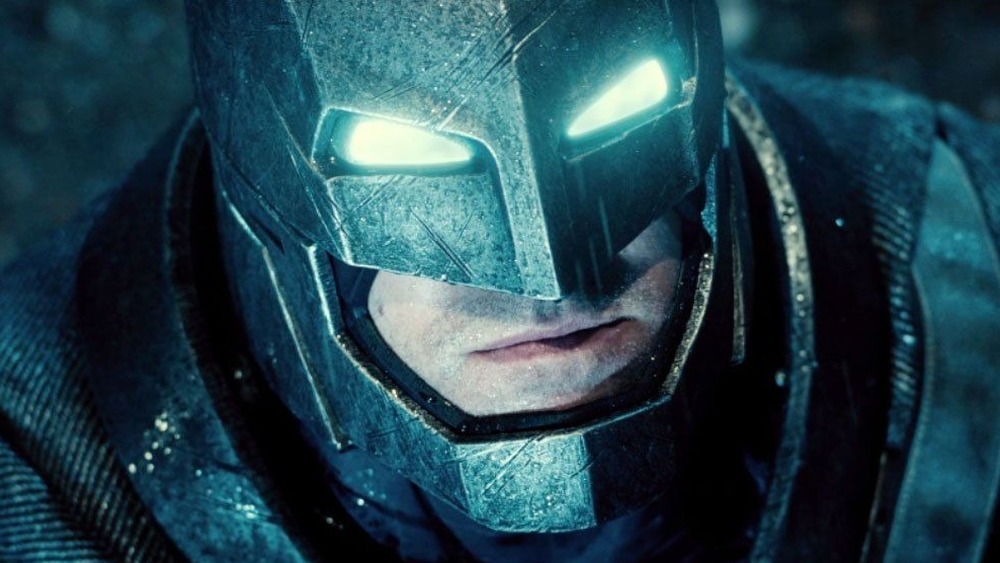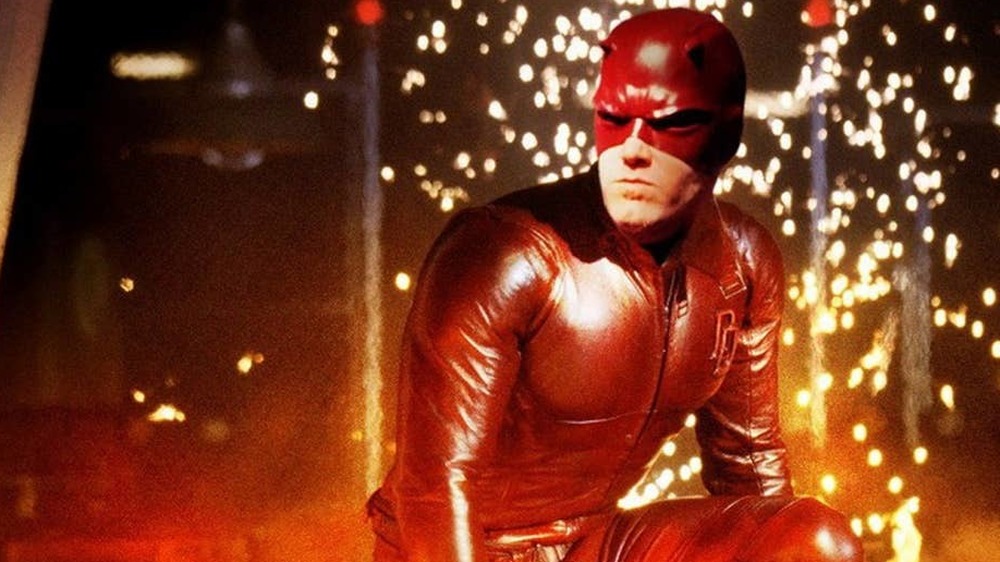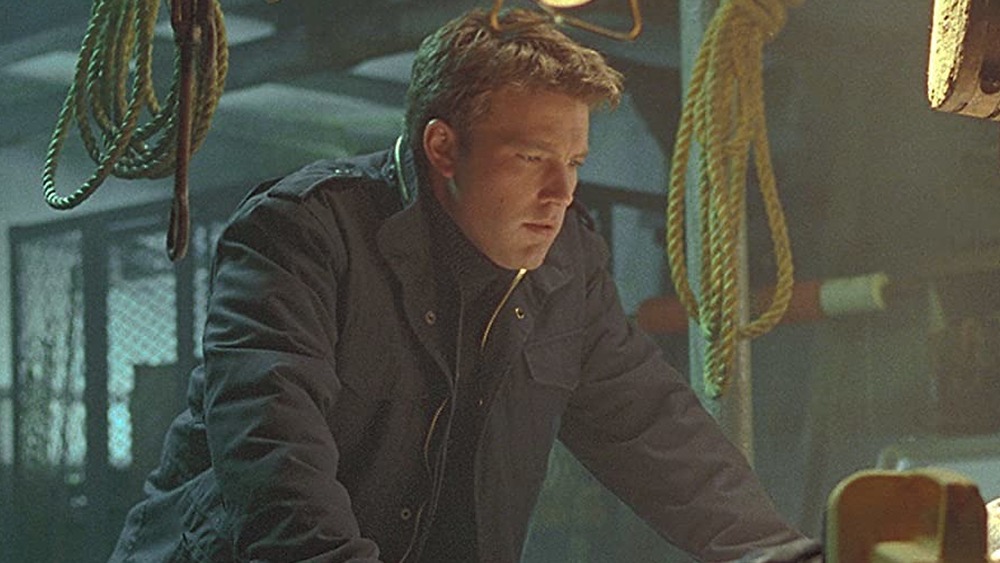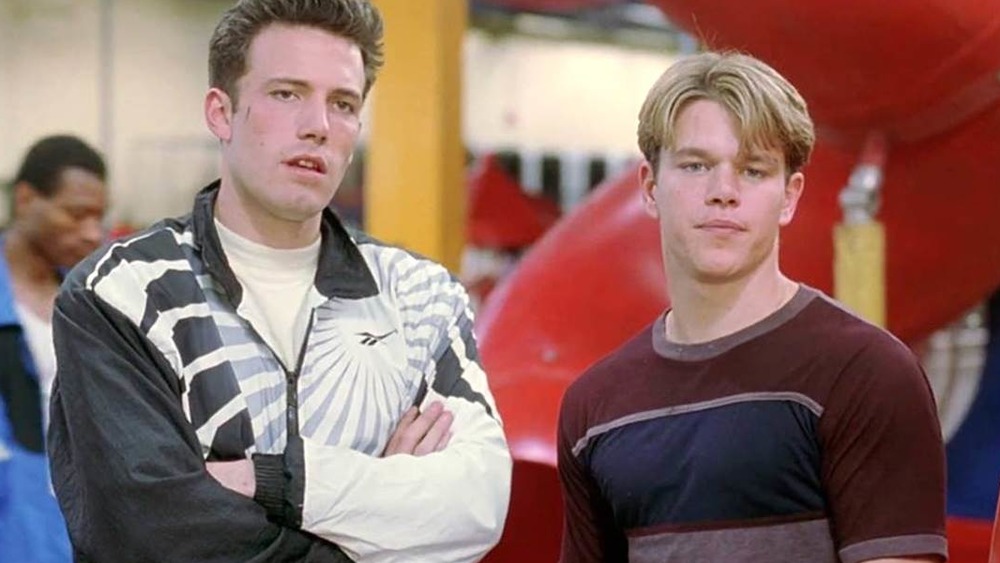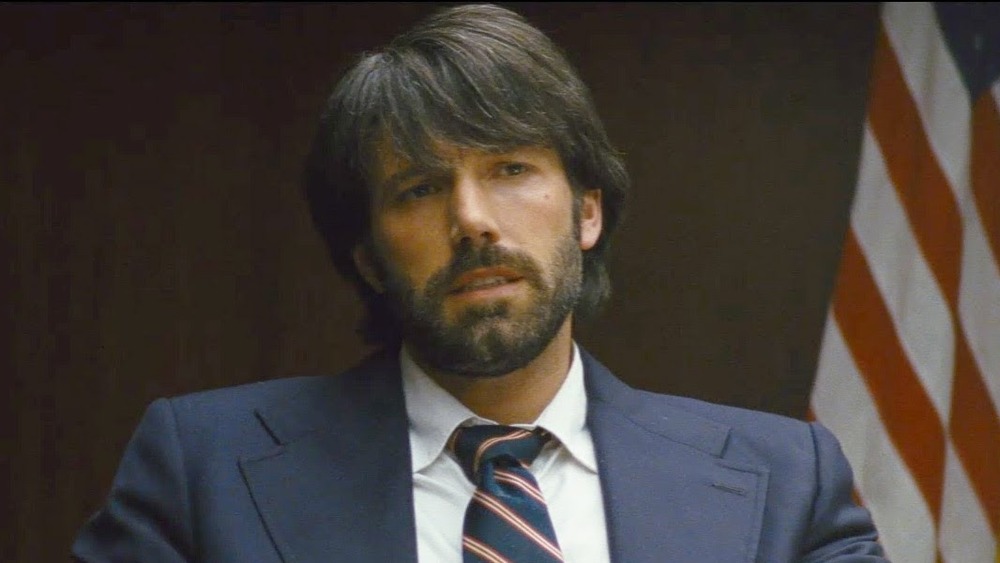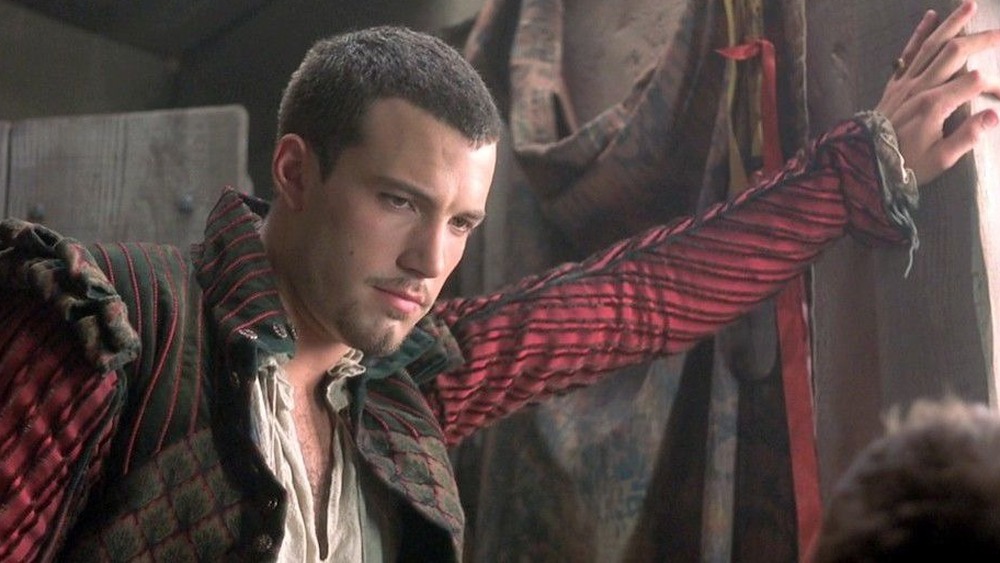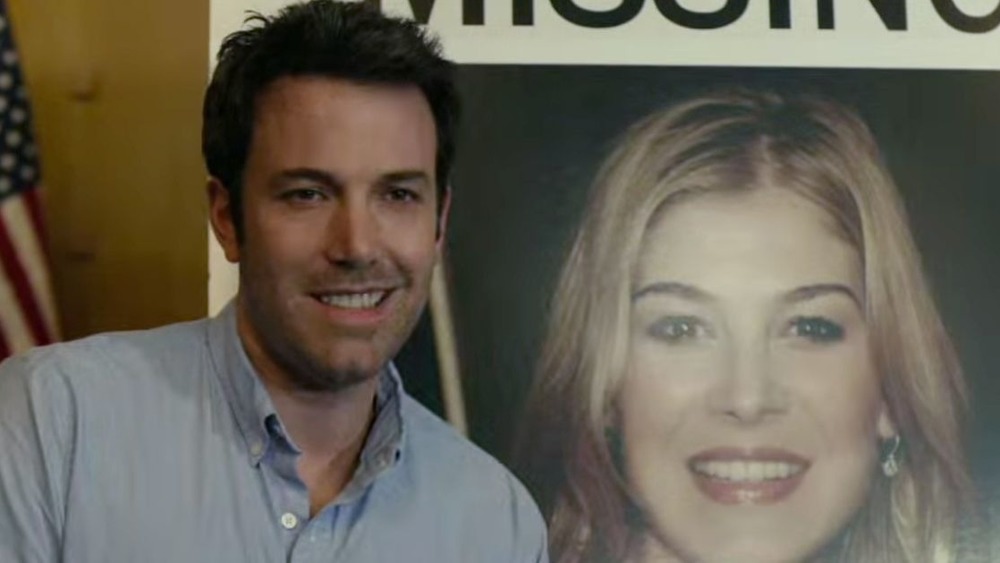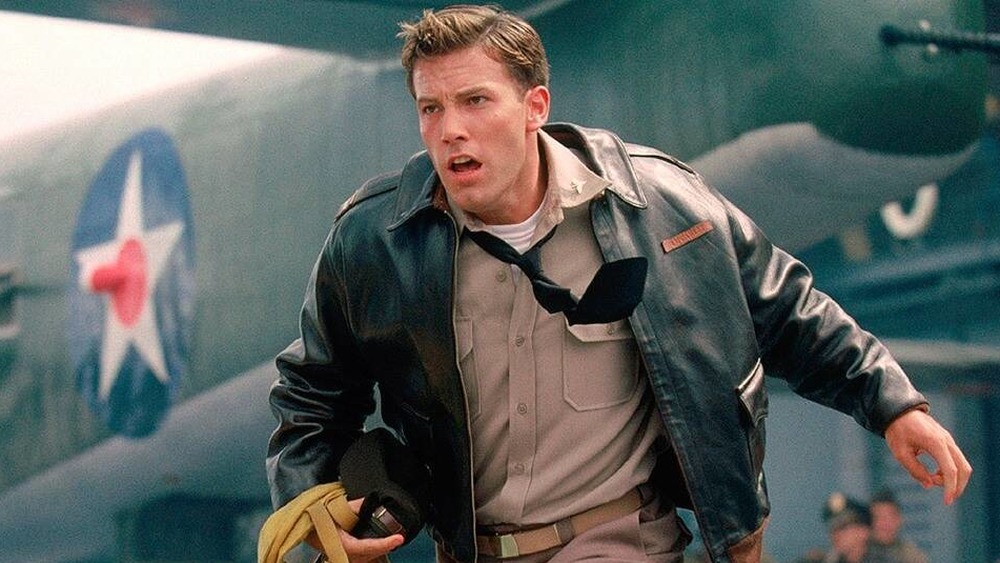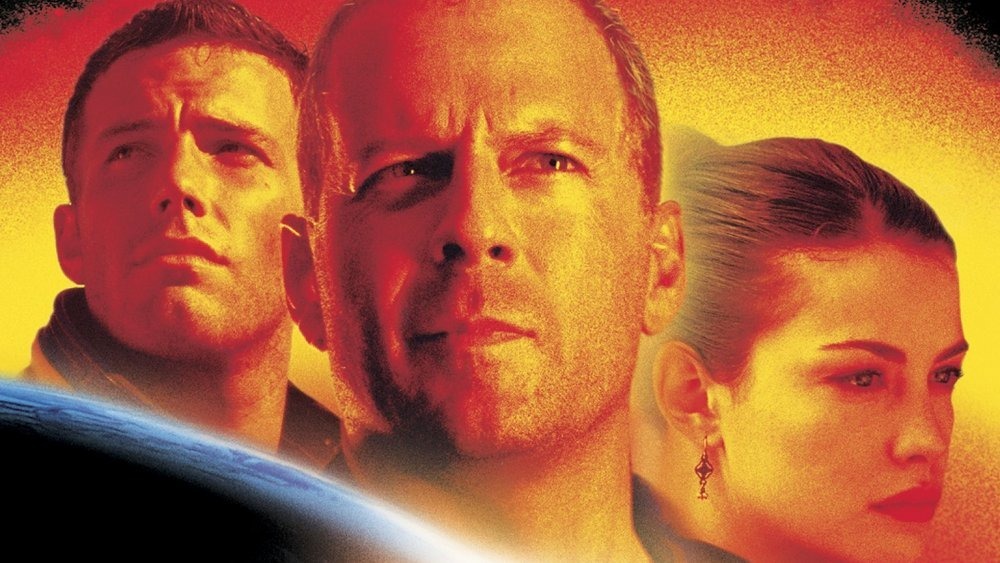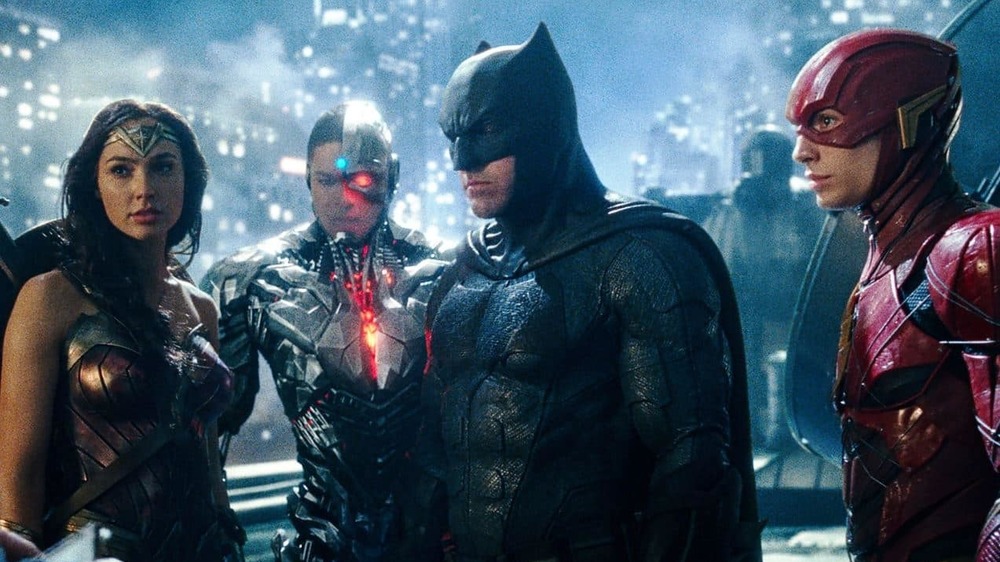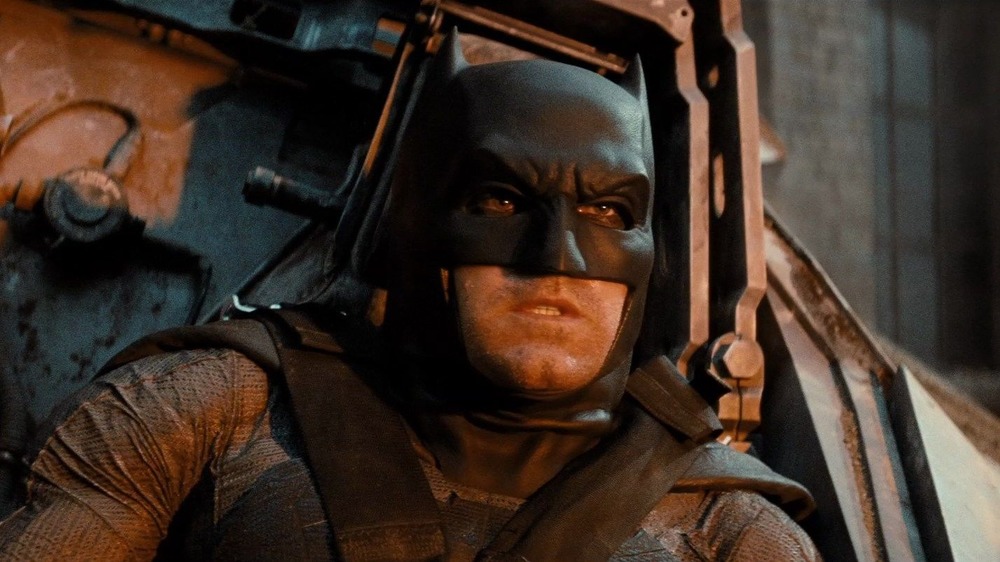The Biggest Ben Affleck Movies Of All Time
If you click a link and buy a product or service from a merchant, we may be paid an affiliate commission.
Ben Affleck has had one of the more rollercoaster careers in recent Hollywood history. The Berkeley-born actor, screenwriter, and director began acting as a child, landing parts in TV shows and a number of small films throughout his teens and early 20s. Then, he scored his breakthrough role with 1997's Chasing Amy, in which director Kevin Smith cast him as a romantic lead. Affleck and longtime friend Matt Damon won an Oscar soon after for Best Original Screenplay for Good Will Hunting, and from there, Affleck took on more leading roles in movies like Armageddon, Forces of Nature, and Pearl Harbor.
However, misfires such as the notorious Gigli followed, even as his personal life and relationships with celebs like Jennifer Lopez became tabloid fodder. Affleck bounced back to establish himself as a director on films like The Town and the Oscar-winning Argo, but poorly received vehicles like Runner Runner, his struggles with alcoholism, and his divorce from Jennifer Garner hampered a promising comeback. In the middle of all that, he landed the role of Batman in Zack Snyder's vision of the DC universe — a role that's arguably been more curse than blessing.
Still, Affleck is one of our most recognizable movie stars, and he's managed to appear in a sizable number of box office hits — some of which may surprise you. Here are the biggest money-earners of Ben Affleck's volatile, still-evolving career.
Daredevil was a risky venture for Ben Affleck
Ben Affleck had always been a big comic book fan, and Marvel's Daredevil, about a blind attorney who uses his heightened senses and martial arts expertise to fight crime at night in New York's gritty Hell's Kitchen, was his favorite. But Daredevil the movie — directed and written by Mark Steven Johnson and co-starring Affleck's future wife, Jennifer Garner, as Elektra, Colin Farrell as Bullseye, and Michael Clarke Duncan as Kingpin — was an inauspicious first attempt at a superhero role for its star.
While Affleck himself received some good notices (as did other members of the cast), critics were largely sour on Daredevil, with the film earning a 44% critics' score on Rotten Tomatoes, with many reviews dismissing it as dull, pedestrian, or derivative. The A.V. Club remarked that coming out "on the heels of such successful comic-book adaptations as X-Men and Spider-Man, Johnson's film makes Daredevil look like the second-rate hero he never really was." Yet even back in 2003, before the rise of the massive Marvel Cinematic Universe (and its own TV iteration of Daredevil), the House of Ideas' characters still held some allure for audiences. While nowhere near as big as X-Men or Spider-Man, Daredevil hauled in nearly $179 million worldwide — good enough to just make it to this list.
The Sum of All Fears added up to box office success
Just prior to making Daredevil, Affleck joined a different kind of franchise when he starred as CIA analyst Jack Ryan in 2002's The Sum of All Fears. Affleck was the third actor to play the role, following Alec Baldwin (The Hunt for Red October) and Harrison Ford (Patriot Games and Clear and Present Danger), and the decision was made to showcase Ryan as a younger character in his fourth feature film.
Directed by Phil Alden Robinson, the film centers on a plot by a neo-Nazi to start a nuclear war between the U.S. and Russia so that he can then establish his own fascist regime in whatever will be left of Europe. Ryan, of course, is the only one who can stop him. While the movie was rather tepidly received on Rotten Tomatoes — where it earned a 60% "fresh" response — it fared well in theaters, earning $194 million worldwide against a $68 million budget. But Reel Film Reviews seemed to sum up the overall consensus on the picture, stating, "The Sum of All Fears is ultimately a decent Ryan adventure that could (and should) have been so much better."
A subsequent Ryan film, Jack Ryan: Shadow Recruit, a reboot in which Chris Pine took over the title role, hauled in a relatively subpar $135 million in 2014.
Good Will Hunting was good to Ben Affleck and Matt Damon
The script for the incredibly moving Good Will Hunting reportedly originated as a final project for a playwriting class that Matt Damon was taking at Harvard. He called in his childhood friend and fellow actor, Ben Affleck, to help him develop it further, and their initial pass at it was more thriller than character study. It had Will Hunting being tracked through South Boston by the government, which wants him for his enhanced intelligence.
The script that the pair ended up completing won an Oscar for Best Original Screenplay (their victory speech was one of the joys of that year's awards telecast). Damon starred as Will, a janitor at MIT who's secretly a genius, with Affleck co-starring as his best friend and Robin Williams earning his own Oscar (for Best Supporting Actor) as the therapist who discovers the pain that Will has been burying inside for years. Racking up an outstanding 98% critics' score on Rotten Tomatoes, where outlets like RogerEbert.com called it "efficiently written, side-splittingly funny, quietly devastating," Good Will Hunting also earned the (pardon the pun) good will of audiences, with the $10 million movie taking in $226 million around the globe.
Argo earned stacks of cash and Oscar's biggest honor
About 15 years after nabbing an Oscar for co-writing Good Will Hunting, Affleck returned to the awards ceremony with a film that would end up winning the biggest prize of the night. Argo was Affleck's third and perhaps most ambitious effort as a director, following 2007's well-received Gone Baby Gone and 2010's acclaimed The Town. Reinventing himself as an auteur behind the camera — as well as a more serious actor — helped Affleck come back from a string of flops like Gigli, Paycheck, Surviving Christmas, and Jersey Girl. Argo was the culmination of that artistic campaign and confirmed that Affleck potentially had a promising second half of his career ahead of him.
Based on actual events (well, sort of), Argo starred Affleck as Tony Mendez, a CIA operative who rescued six American diplomats from Tehran during the Iranian hostage crisis by pretending to be a producer working on a sci-fi movie. While the suspenseful thriller reportedly played fast and loose with the facts of the operation, audiences were still enthralled to the tune of $232 million worldwide, and critics were similarly impressed. Although Affleck didn't score nominations for either Best Director or Best Actor, Argo did win Best Picture at the 85th Academy Awards (in addition to Best Adapted Screenplay and Best Editing), earning Affleck his second career Oscar as one of its producers.
Audiences fell head over heels for Shakespeare in Love
We can't honestly say that Affleck's presence was a major factor in the success of this 1998 historical romantic comedy-drama, as he played the supporting role of Ned Alleyn, a real-life actor who was considered the preeminent thespian of his era. Although it's not clear whether Alleyn actually acted in any of Shakespeare's works, in Shakespeare in Love, he's asked to originate the role of Mercutio in the play that eventually becomes Romeo and Juliet.
However, the movie is mainly concerned with the fictional love affair between the Bard (Joseph Fiennes) and Viola de Lesseps (Gwyneth Paltrow). That's probably a good thing, since Affleck's performance is not considered one of the high points of his career. Playing an Elizabethan actor was kind of just out of his reach. Despite Affleck's distractingly off-key performance, however, Shakespeare in Love hauled in a very respectable $289 million around the world, the critics showered it with praise, and it cleaned up at the 71st Academy Awards. The film won seven Oscars, including Best Actress for Paltrow, Best Supporting Actress for Judi Dench, Best Original Screenplay, and Best Picture, controversially beating out Saving Private Ryan.
Gone Girl got a rousing welcome from moviegoers
Ben Affleck's triumphant Best Picture win for Argo was followed by two duds — Terrence Malick's To the Wonder and Brad Furman's Runner Runner — before he scored a hit with director David Fincher's caustic, darkly satirical adaptation of Gillian Flynn's novel Gone Girl. With a screenplay by Flynn herself, Gone Girl — about a woman (Rosamund Pike) who mysteriously disappears, which leads to her husband (Affleck) becoming the prime suspect — was a perfect vehicle for Fincher's misanthropic sensibilities, as the film explored the more toxic aspects of marriage, misogyny, and the media.
Affleck was lauded for his performance, but he was outshined by Pike, who won well-deserved praise (and an Academy Award nomination) for her work as the scheming, ruthless, yet charismatic Amy. The film's $369 million worldwide take remains the best to date of Fincher's career (which includes hits like The Social Network and Seven), and critics lavished an 87% "fresh" rating on the picture. Gone Girl generated its share of controversy, as well, with pundits calling it both feminist and sexist at the same time.
Pearl Harbor survived a brutal attack by the critics
Americans sure are patriotic about supporting their war movies, even when said film is nominated for a Razzie Award as Worst Picture of the Year. That was the fate that befell Pearl Harbor, which was also trashed by critics who dive-bombed the movie with a 24% "rotten" attack on Rotten Tomatoes. Yet that didn't stop moviegoers from trooping out in droves to see this Michael Bay-directed would-be epic, which earned more than $449 million at the box office despite all the negative reviews hurled at it.
In this highly fictionalized and (as is typical for Bay) over-adrenalized drama set before, during, and after the infamous 1941 attack on the Hawaiian naval base, Affleck stars as made-up combat pilot Rafe McCawley, one-third of a love triangle that includes a beautiful nurse named Evelyn Johnson (Kate Beckinsale) and Rafe's best friend, fellow pilot Danny Walker (Josh Hartnett). While Bay earned some acclaim for the recreation of the attack itself, the romance and dialogue, as well as the film's historical accuracy (or lack thereof), were derided as banal and dull.
Affleck and the rest of the cast escaped largely unscathed, although Affleck also earned a Razzie nom as Worst Actor, and he, Beckinsale, and Hartnett were also nominated for, uh, Worst Couple. In the end, the movie's massive box office take – historical inconsistencies be damned — no doubt assuaged the worries of Disney execs nervous about its reported $140 million budget.
Armageddon blasted a competing meteor movie away
If 1998 was the year of the dueling meteor disaster movies, it's safe to say that Armageddon won that battle hands down. It grossed nearly $554 million around the world, easily blowing past that same summer's Deep Impact and its $334 million gross. While neither picture fared that well with the critics, Deep Impact managed a 45% rating on Rotten Tomatoes, which still outpaced Armageddon's 38% shellacking.
Directed by Michael Bay (who apparently liked working with Affleck so much he hired him again for the equally derided Pearl Harbor just a couple of years later), Armageddon is a big, loud mess of a movie, made even more ridiculous by the sight of Affleck and Bruce Willis as father and son oil drillers who suddenly can fly through space and stop an asteroid in its tracks. It's a fun watch in its own bonkers way, but the cast seems mostly like they're phoning it in, and Bay never meets a shot he wants to hold for more than three seconds — even the awesome ones.
As a result, the film was nominated for seven Razzies, and while Willis got the nod for Worst Actor over Affleck, the rising star and his on-screen love interest, Liv Tyler, did snag a nomination for Worst Screen Couple. The lovebirds' infamous "animal crackers" scene is probably not one that Affleck includes on his career highlight reel.
Even Ben Affleck's Batman couldn't save Justice League
The story of Justice League is about much more now than a bunch of superheroes teaming up to fight off a menace from another universe. It's about director Zack Snyder leaving the movie before finishing it because of a terrible family tragedy. It's about Warner Bros. seeing an opportunity to make it more like The Avengers by hiring the guy who made that MCU movie to finish Snyder's film. It's about Joss Whedon's (probably studio-truncated) cut being released in 2017 to disappointment and indifference. And it's about a passionate fan base clamoring to see Snyder's original vision restored — with Snyder himself egging them along.
The arrival of Zack Snyder's Justice League on HBO Max meant we'll never know how much it might've grossed at the box office, which leaves us with the severely underwhelming $658 million that Whedon's version made. One aspect of The Avengers that Whedon couldn't replicate for the DC gang was getting Justice League into the billion dollar club. Yet it was still good enough to make the picture the second biggest earner of Affleck's career.
As for the actor, his second appearance as Batman is less dour than his first, with Whedon's reshoots allowing Bruce Wayne to flirt with Wonder Woman (Gal Gadot), crack some jokes, and occasionally smile. A lot of that is excised in Snyder's reclamation, but we're still willing to speculate that Affleck's strengths as the Caped Crusader weren't fully utilized in his two outings to date.
Batman v Superman: Dawn of Justice may be Hollywood's only $800 million flop
How does a movie make $874 million worldwide and still wind up considered as a bomb? When everyone thought it was going to easily sail past a billion dollars, that's how. After all, Batman and Superman are two of the most famous superheroes in all of pop culture history. Putting them together on the big screen for the first time should've been a no-brainer, but Zack Snyder's film polarized both fans and critics with what many considered a clumsy attempt to reverse-engineer a Marvel-style shared universe within a single movie.
To be fair, Batman v Superman: Dawn of Justice was hardly a complete creative or financial disaster — it was just expected to do so much better. Affleck himself was lauded by many for his performance as Bruce Wayne and the Dark Knight. His haunted, older, more psychopathic Batman was in some ways an honest evolution for the character ... that is, if we'd met his version earlier and gotten to know him a bit better before throwing him in the ring with the last son of Krypton.
Affleck's high-profile appearances in both this and Justice League also came during a troubled time in his personal life, which may have arguably affected his overall input. But as it stands, it's still the highest-grossing movie of Ben Affleck's career, and even if he dons the cape and cowl again, it's likely to stay there.
